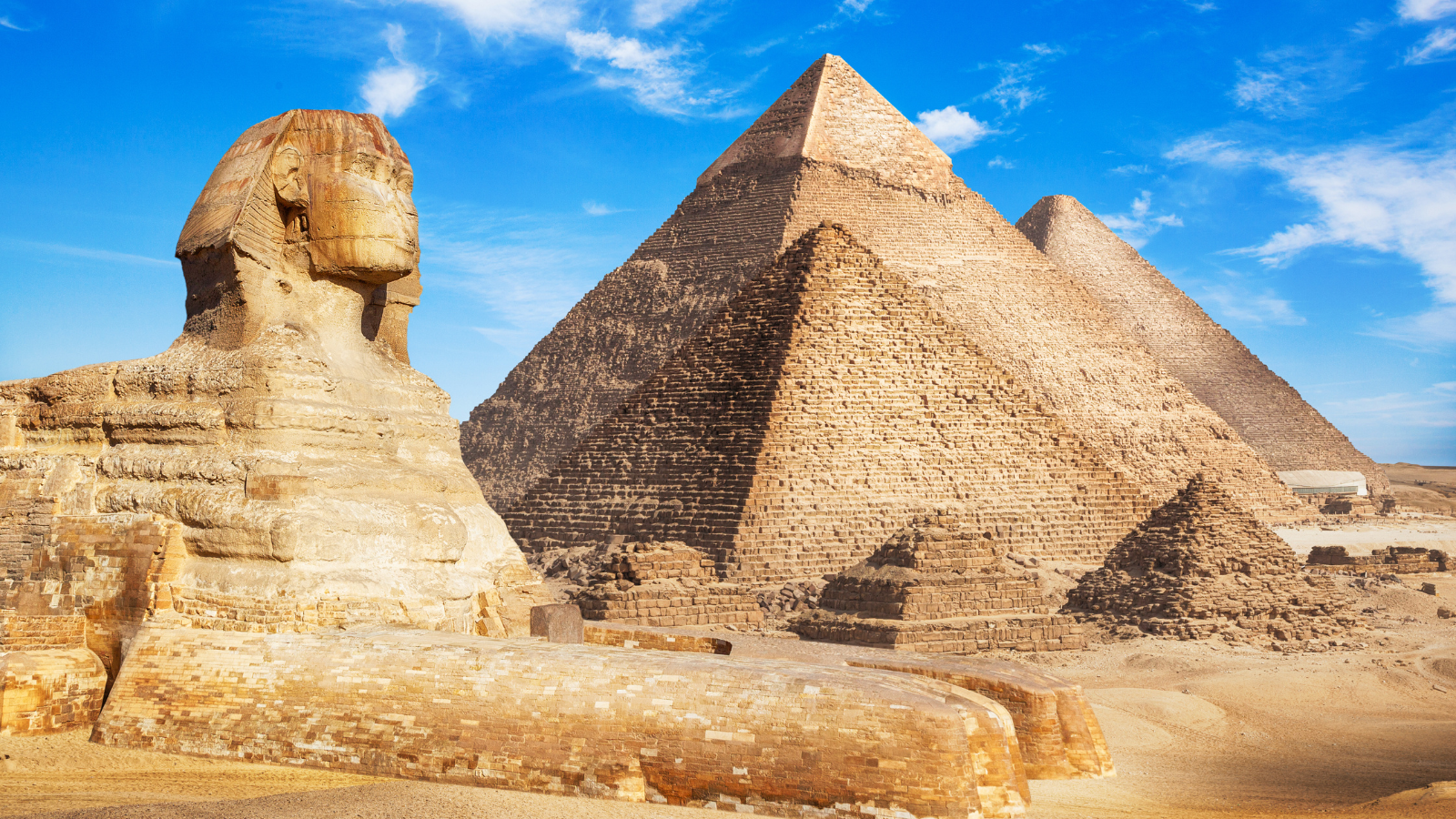
How to Experience the Best of Egypt: A Guide for Indian Tourists
Egypt, the land of the Pharaohs, offers Indian travelers a fascinating blend of ancient history, culture, and natural beauty. From the iconic Pyramids of Giza and the treasures of Luxor to the bustling markets of Cairo and the serene beauty of the Nile, Egypt is an unforgettable experience. This guide covers everything Indian tourists need to know about exploring Egypt's highlights, including the best time to visit, shopping tips, and essential travel information.
Cairo: The Heart of Egypt:
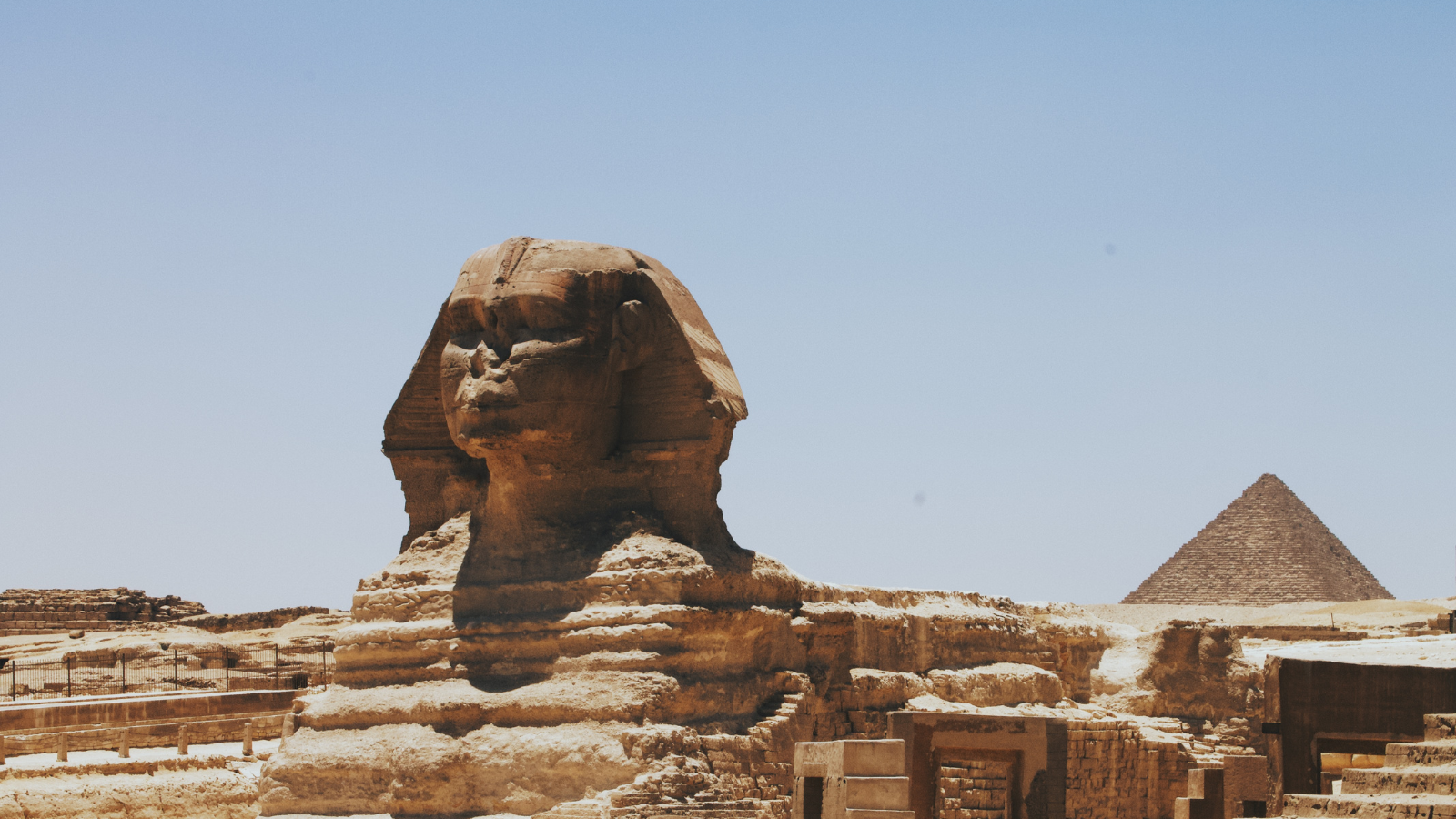
Description:
Cairo, Egypt’s vibrant capital, is a mesmerizing blend of ancient history and modern urban life. This bustling metropolis is home to some of the world’s most iconic landmarks, offering travelers a fascinating journey through time. Begin with a visit to the Pyramids of Giza—the last of the ancient Seven Wonders of the World—and the Sphinx, which have stood for over 4,500 years. Next, explore the Egyptian Museum, housing over 120,000 artifacts, including the treasures of King Tutankhamun and a vast collection of mummies and relics from ancient Egypt’s dynasties. Wander through Islamic Cairo, where you’ll find stunning mosques, bustling souks, and historic sites like the Sultan Hassan Mosque and Al-Azhar Mosque.
Highlights:
- Pyramids of Giza and Sphinx: Ancient wonders and architectural marvels.
- Egyptian Museum: A comprehensive collection of Egypt’s ancient artifacts.
- Islamic Cairo: Historic mosques, vibrant markets, and medieval architecture.
Travel Tip:
Begin your day early to avoid the heat and the busiest crowds. Hiring a certified local guide can enrich your experience, providing insight into Egypt’s fascinating history and helping you navigate the markets and historic sites with ease.
Luxor: The World’s Largest Open-Air Museum:
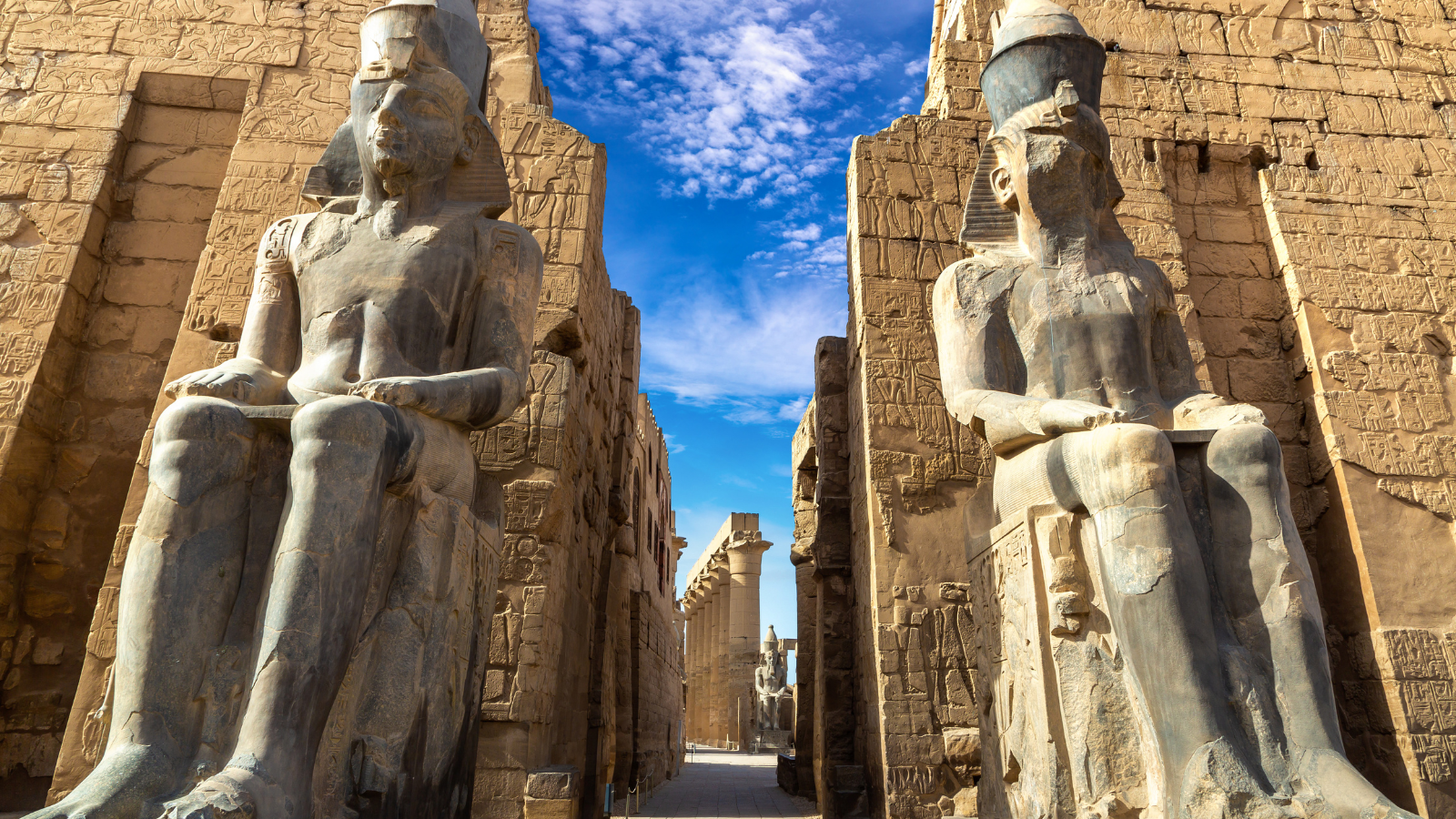
Description:
Luxor, known in ancient times as Thebes, is often called the "world’s largest open-air museum" for its wealth of archaeological treasures. The city is divided by the Nile River, with the East Bank home to Karnak Temple and Luxor Temple, while the West Bank features the Valley of the Kings—a burial ground for pharaohs like Tutankhamun and Ramses II. Karnak Temple is a vast complex with stunning hieroglyphics, towering columns, and the sacred Temple of Amun-Ra. Luxor Temple is equally impressive, particularly at night when it’s beautifully illuminated.
Highlights:
- Valley of the Kings: An ancient necropolis where pharaohs and nobility are buried.
- Karnak Temple Complex: A vast area with sacred temples, pylons, and an open-air museum.
- Luxor Temple: A well-preserved temple that is especially striking at sunset.
Travel Tip:
Luxor’s desert climate can be intense, so plan visits to major sites in the early morning or late afternoon. Booking a guided tour is highly recommended to understand the historical context of each site and to navigate the numerous tombs in the Valley of the Kings.
Aswan: A Peaceful Riverside Escape
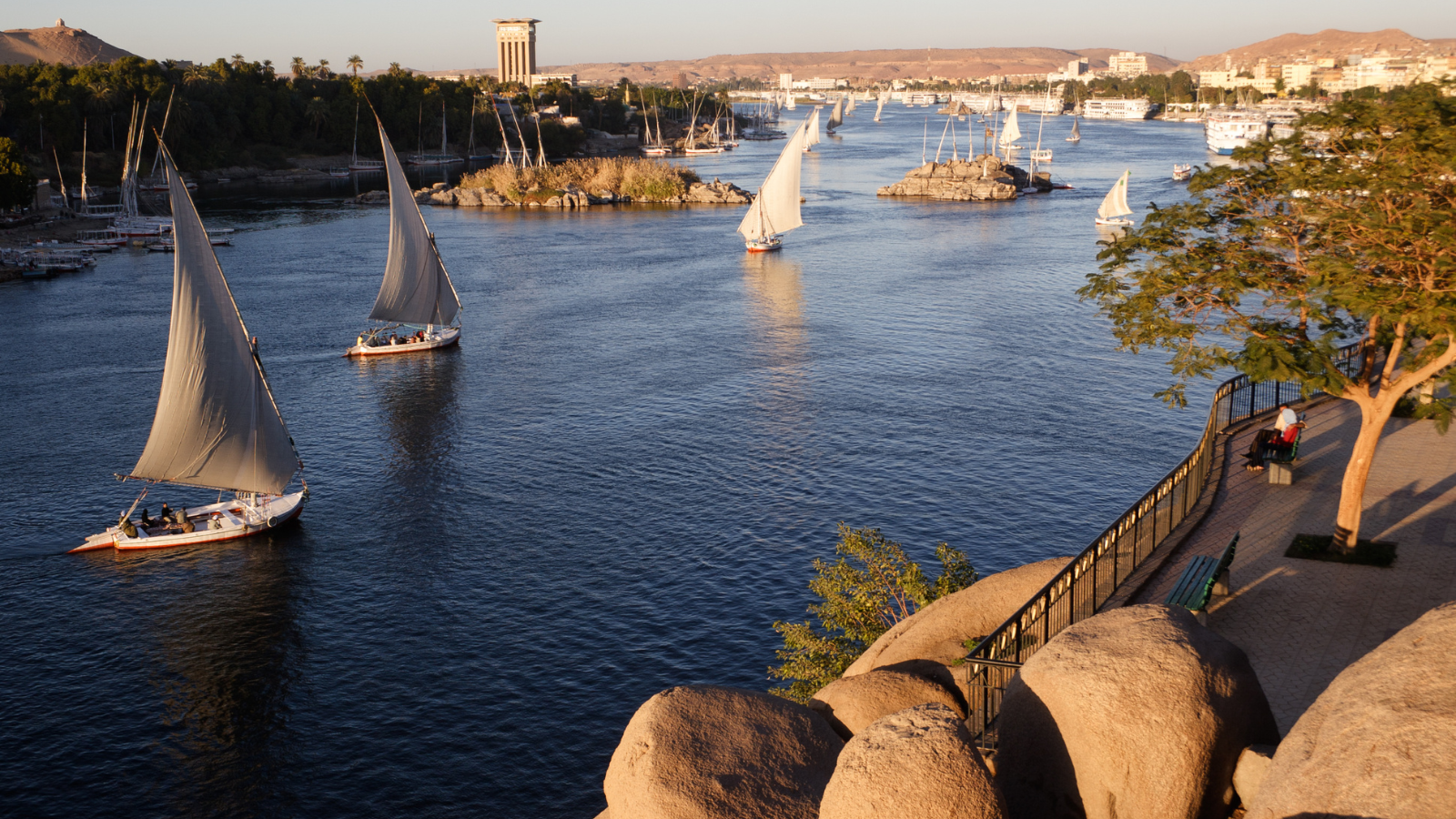
Description:
Aswan, known for its laid-back atmosphere, is a charming city along the Nile, offering stunning riverside scenery and a rich blend of Egyptian and Nubian culture. A must-see is the Philae Temple, dedicated to the goddess Isis and beautifully situated on an island in the Nile. The Unfinished Obelisk in Aswan’s granite quarries is a fascinating sight, providing insights into ancient stone-cutting techniques. A felucca boat ride on the Nile is a peaceful way to experience Aswan, with views of Elephantine Island and the lush banks of the river. Aswan is also a gateway to Abu Simbel, where the colossal statues of Ramses II stand guard over his temple.
Highlights:
- Philae Temple: An ancient temple complex on Agilkia Island.
- Unfinished Obelisk: A monumental obelisk that was abandoned due to a crack during carving.
- Nubian Museum: A rich showcase of Nubian culture and history, unique to this region.
Travel Tip:
A Nile cruise from Aswan to Luxor is an unforgettable experience, offering luxury and scenic beauty. Spend time exploring Nubian villages to experience a distinct cultural heritage within Egypt.
Alexandria: Egypt’s Mediterranean Gem
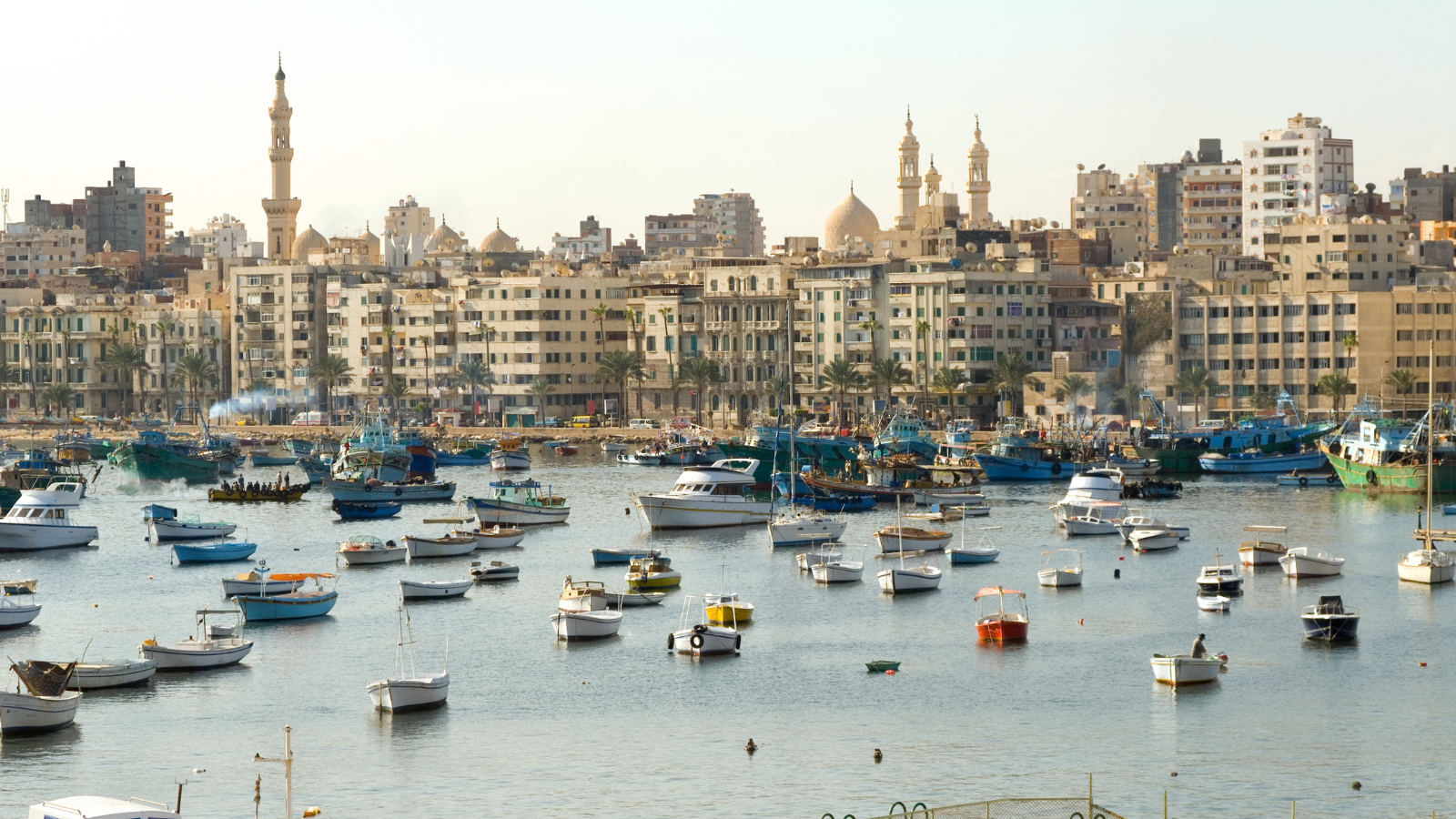
Description:
Founded by Alexander the Great, Alexandria is Egypt’s second-largest city and a beautiful coastal retreat with a strong Greco-Roman heritage. The city is home to the Catacombs of Kom El Shoqafa, a fascinating underground complex of tombs and burial chambers. The Citadel of Qaitbay, built on the ruins of the ancient Lighthouse of Alexandria, offers stunning views of the Mediterranean. Visit the Library of Alexandria, a modern tribute to the ancient world’s most famous library, hosting millions of books and research centers. Alexandria’s beaches and seafood restaurants add to its allure, making it an ideal spot for relaxation and cultural exploration.
Highlights:
- Catacombs of Kom El Shoqafa: A Roman burial site with intricate carvings and labyrinthine tunnels.
- Citadel of Qaitbay: A historic fortress offering panoramic sea views.
- Montaza Palace and Gardens: Royal gardens that are perfect for a leisurely stroll.
Travel Tip:
Alexandria’s seafood is a must-try; enjoy freshly caught fish at local restaurants along the Mediterranean. Consider taking a day trip from Cairo if you’re short on time, as it’s just a two-hour drive from the capital.
Red Sea Riviera: Sharm El Sheikh and Hurghada
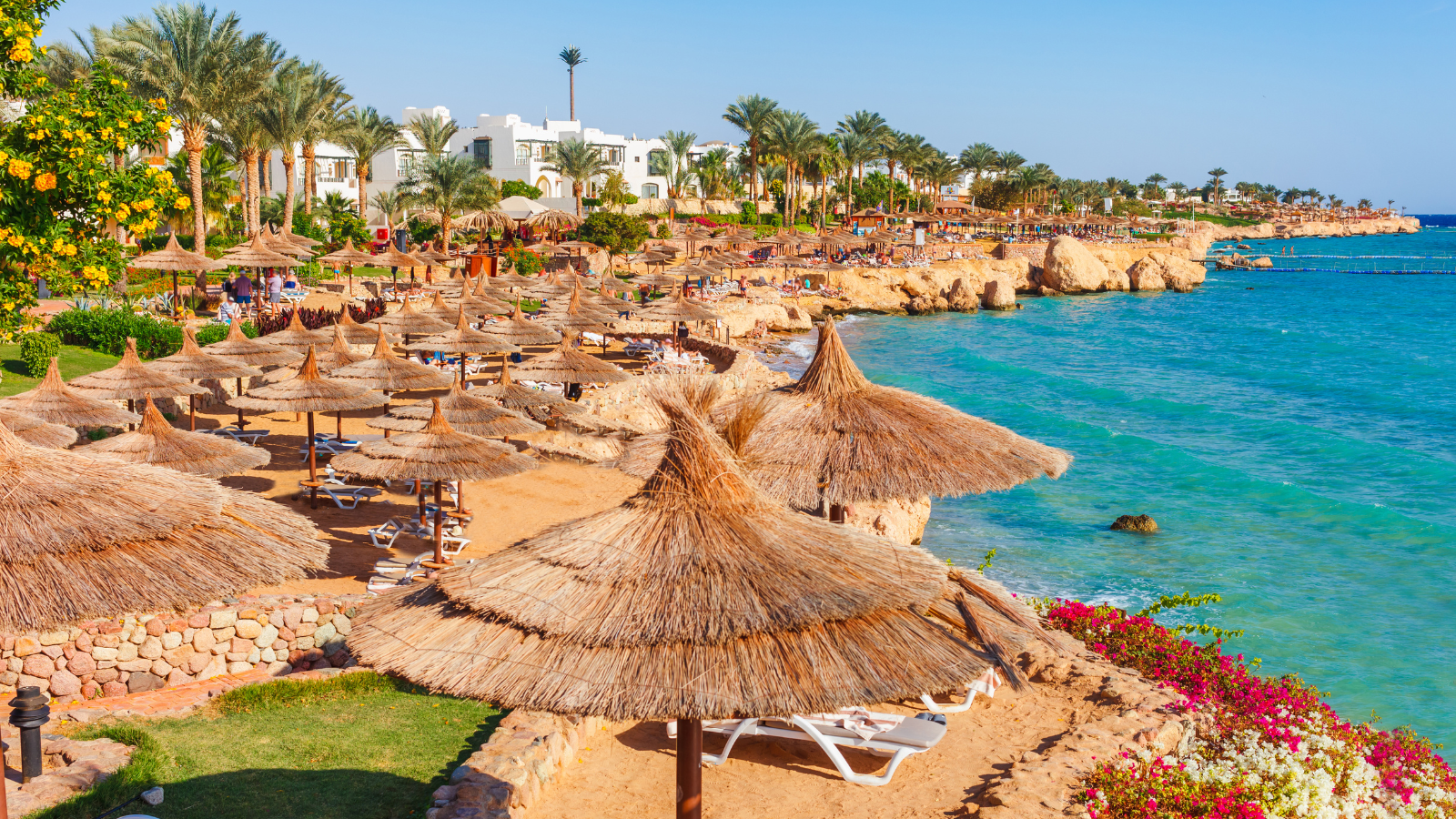
Description:
The Red Sea Riviera offers some of Egypt’s most stunning coastal landscapes and is a paradise for diving, snorkeling, and water sports. Sharm El Sheikh and Hurghada are known for their vibrant coral reefs, marine life, and world-class diving spots like Ras Mohammed National Park. Sharm El Sheikh also features luxury resorts, casinos, and bustling nightlife, while Hurghada is known for its laid-back vibe and family-friendly resorts. For Indian travelers, the Red Sea Riviera provides an ideal balance of adventure and relaxation with all-inclusive resorts offering luxurious amenities.
Highlights:
- Ras Mohammed National Park: A protected marine reserve with rich coral reefs.
- Luxury Resorts: Upscale accommodations with private beaches, pools, and spa services.
- Coral Reefs and Marine Life: Vibrant ecosystems ideal for diving and snorkeling.
Travel Tip:
Many resorts offer all-inclusive packages, making it easy to relax and enjoy activities without worrying about additional costs. Look for diving schools with PADI certification if you’re interested in scuba diving, as the Red Sea is one of the top diving locations in the world.
5-Day Trip Ideas in Trawelmart:
Day 1: Cairo – Explore the Pyramids and Sphinx
- Highlights: Begin with a visit to the Pyramids of Giza, the Sphinx, and the Egyptian Museum.
Day 2: Luxor – Visit Ancient Temples and Tombs
- Highlights: Discover the Valley of the Kings, Karnak Temple, and Luxor Temple with a guided tour.
Day 3: Aswan – Embrace Nubian Culture
- Highlights: Enjoy a felucca ride on the Nile and visit the Philae Temple and Nubian Museum.
Day 4: Alexandria – Coastal History and Culture
- Highlights: See the Citadel of Qaitbay, Library of Alexandria, and relax by the Mediterranean.
Day 5: Red Sea Riviera – Relax and Unwind
- Highlights: End with a relaxing day at a beach resort in Sharm El Sheikh or Hurghada, with optional diving.
Best Time to Visit Egypt:
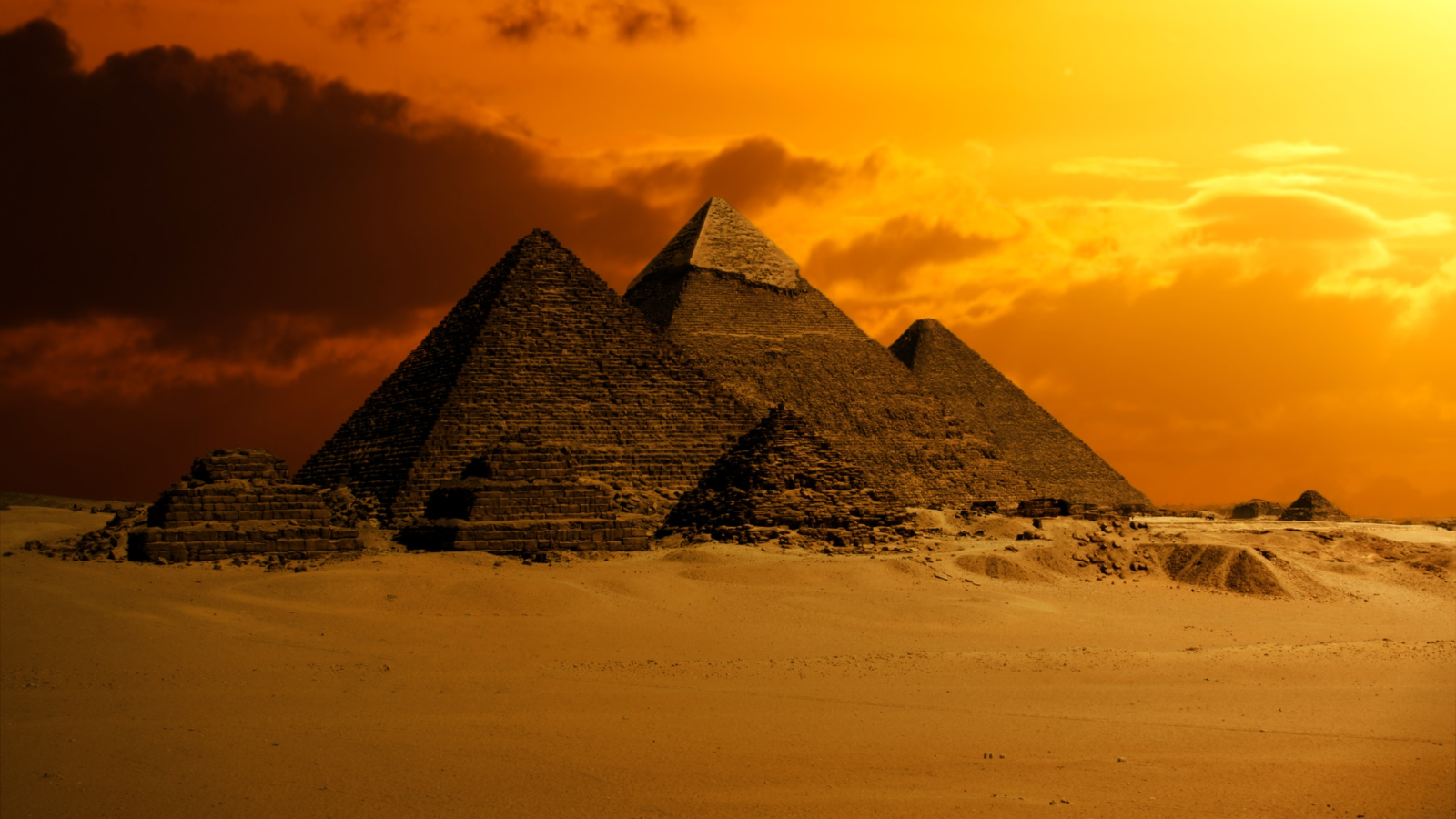
Egypt is a year-round destination, but the best time to visit varies based on weather preferences, planned activities, and personal comfort with crowds. Each season brings unique opportunities for travelers, whether exploring the iconic pyramids, cruising the Nile, or relaxing by the Red Sea.
1. High Season (October to April):
- Weather: This is Egypt’s peak travel season, known for its mild and pleasant weather, with daytime temperatures averaging between 20°C to 28°C (68°F to 82°F). The evenings can get cool, especially in desert areas and by the Nile, making it comfortable for sightseeing and outdoor activities.
- Ideal Activities:
- Sightseeing: This season is perfect for visiting outdoor historical sites such as the Pyramids of Giza, Luxor, the Valley of the Kings, and Karnak Temple. With clear skies and cooler temperatures, you can explore these sites in comfort.
- Nile Cruises: Nile cruises from Aswan to Luxor are particularly enjoyable, as the weather is ideal for deck-side views and excursions to ancient sites along the way.
- Festivals and Events: Egypt celebrates a variety of events during this period, such as Christmas and New Year’s Eve in December, with festive activities held across Cairo and other tourist cities. In April, the Sham El-Nessim festival, an Egyptian spring holiday, is celebrated with picnics and cultural events.
- Tourist Traffic: Expect higher tourist numbers and higher prices, especially around popular holidays in December and Easter. Early bookings for accommodations, flights, and guided tours are recommended to avoid last-minute costs.
2. Shoulder Season (May and September):
- Weather: May and September offer warmer temperatures that average around 30°C to 35°C (86°F to 95°F), but without the intense summer heat of July and August. This period provides a balance between comfort and fewer crowds, making it ideal for travelers who prefer quieter experiences.
- Ideal Activities:
- Desert and Oasis Tours: Visiting the Siwa Oasis and the White Desert can be enjoyable during these months, as the temperatures are manageable, and the unique landscapes provide an escape from busier tourist sites.
- Deals and Discounts: Many hotels and tour operators offer discounted rates during the shoulder season, making it a budget-friendly option. Travelers can enjoy high-quality accommodations at a lower cost.
- Beaches and Coastal Areas: September is a fantastic time to visit Egypt’s coastal areas like the Red Sea Riviera (Sharm El Sheikh, Hurghada) as water temperatures are warm for diving, snorkeling, and beach relaxation.
- Tourist Traffic: Fewer crowds at popular sites and attractions make this an appealing time for those looking for a more relaxed pace. Sites that are typically crowded, like the Pyramids of Giza and Egyptian Museum, are more accessible.
3. Low Season (June to August):
- Weather: Summer in Egypt can be very hot, with temperatures in southern areas like Luxor and Aswan reaching 40°C to 45°C (104°F to 113°F). Coastal areas like the Red Sea and Mediterranean Sea remain slightly cooler, with temperatures around 30°C to 35°C (86°F to 95°F).
- Ideal Activities:
- Beach Resorts and Diving: This is an excellent time to visit Egypt’s coastal resorts along the Red Sea, such as Sharm El Sheikh, Dahab, and Hurghada. The sea breeze and slightly lower temperatures make these areas more comfortable, and they are perfect for water-based activities like diving, snorkeling, and windsurfing.
- Cultural Festivals: The summer months feature unique cultural events, including Sun Festival at Abu Simbel in July, where sunlight illuminates the inner temple. Cairo also hosts the International Film Festival in August, drawing a crowd of film enthusiasts.
- Indoor Activities: Summer is ideal for exploring Egypt’s indoor attractions, such as the Egyptian Museum in Cairo, the Luxor Museum, and various art galleries. Many hotels and resorts are also equipped with air-conditioning, making it comfortable to relax indoors.
- Tourist Traffic: The intense heat keeps many tourists away, so this is the quietest season. Travelers who can handle the heat may find the best hotel deals and discounted rates for tours and attractions, as well as less crowded sites.
Currency and Cash Details in Egypt:
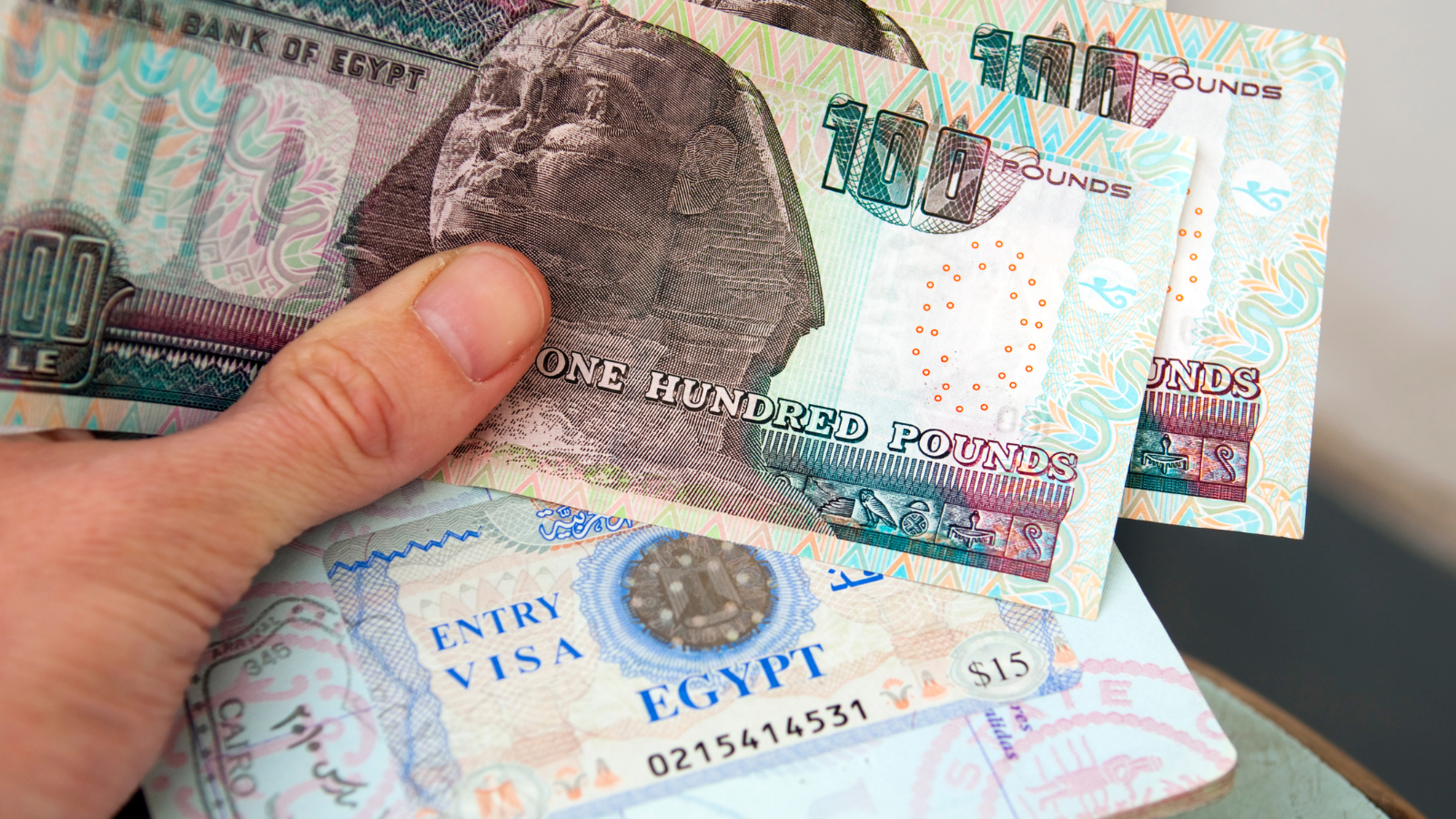
Currency
- The official currency in Egypt is the Egyptian Pound (EGP). Banknotes are available in denominations of 1, 5, 10, 20, 50, 100, and 200 EGP, while coins come in smaller denominations of 1 EGP and piasters (25, 50).
- It’s advisable to carry a mix of cash and credit cards. While credit and debit cards are widely accepted in larger hotels, restaurants, and shops, smaller vendors and markets often prefer cash payments.
Exchange Tips
- Currency Exchange: Currency can be exchanged at banks, hotels, or dedicated exchange offices in major cities. Be cautious of exchange rates at airports, as these may not be as favorable as in city banks or exchange bureaus.
- ATMs: ATMs are widely available in urban areas and at tourist sites. Many ATMs accept international cards, making it convenient to withdraw local currency. Ensure that your card allows international withdrawals and check with your bank for any fees.
- Currency Advice: Keep smaller denominations of Egyptian pounds for purchases at street markets, as it can be challenging to get change for larger bills.
- US Dollars and Euros: Some tourist-heavy shops accept USD and Euros, but using local currency (EGP) is generally more convenient and avoids unfavorable conversion rates.
Credit Cards and Digital Payments
- Credit Cards: Credit cards, especially Visa and MasterCard, are accepted in most hotels, larger restaurants, and upscale stores. However, be cautious of international transaction fees.
- Digital Payments: Digital payments like Apple Pay or Google Wallet are not widely accepted. Cash remains the most convenient option for smaller transactions.
Shopping Tips in Egypt:
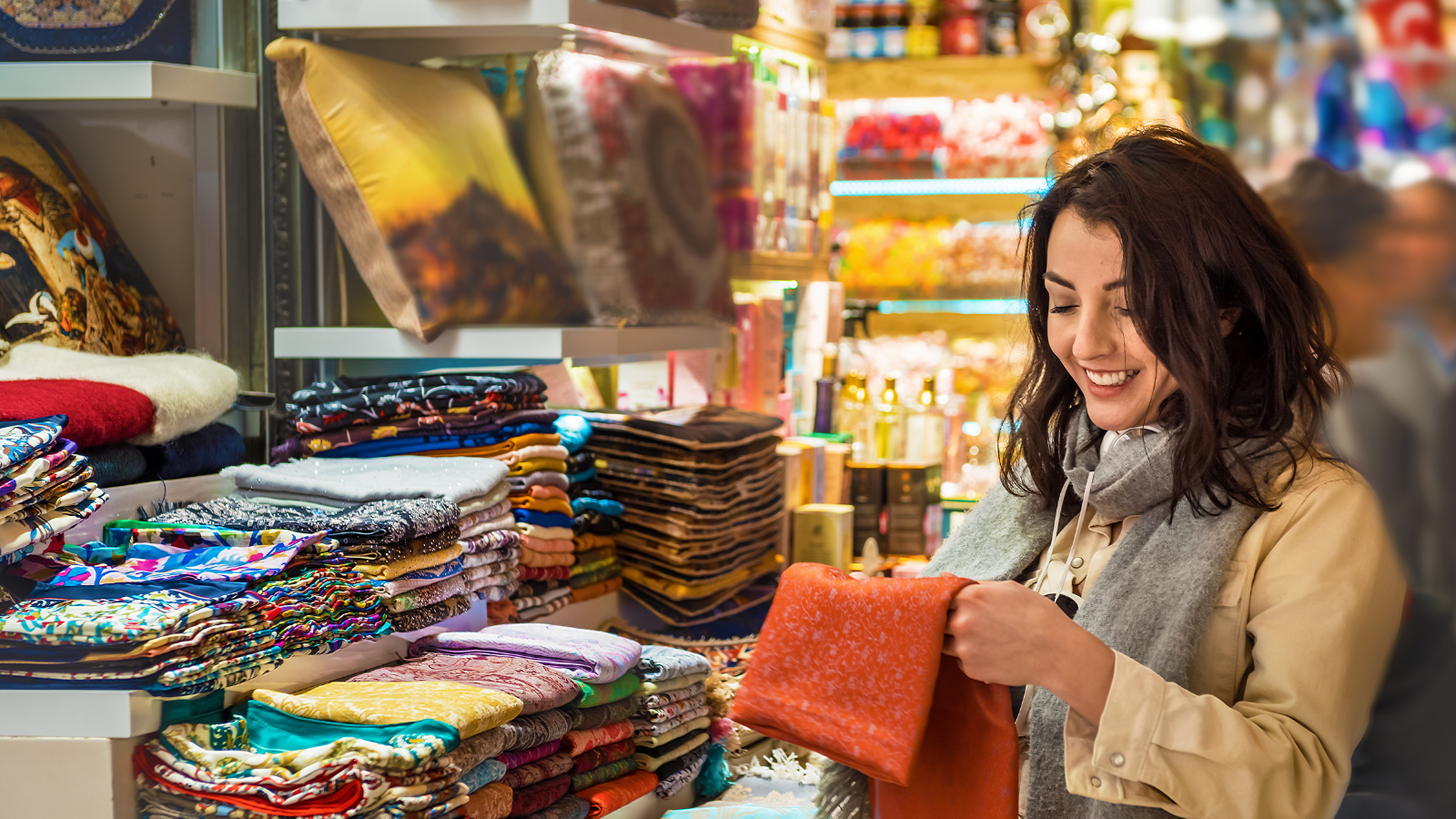
Popular Souvenirs and Local Products
- Papyrus Paintings: Papyrus is an ancient Egyptian material used for writing. Papyrus paintings are a unique and authentic Egyptian souvenir. Look for certified papyrus to ensure you’re buying genuine items, as cheaper alternatives are often made from banana leaves.
- Egyptian Cotton: Known for its high quality, Egyptian cotton is popular for bed linens, towels, and clothing. Stores specializing in cotton products can be found in Cairo and other large cities.
- Perfumes and Essential Oils: Egypt is renowned for its natural perfumes and essential oils. Many vendors offer "perfume essence," which is undiluted and can be used directly or mixed to create your own perfume. Be cautious of quality and opt for reputable vendors.
- Spices and Herbs: Egyptian markets sell spices like saffron, hibiscus (for traditional Karkade tea), cumin, and black seed, all packed with intense flavor. Visit spice markets like those in Khan El Khalili for an authentic experience.
- Handcrafted Jewelry and Scarabs: Egyptian-style jewelry often features symbols like the ankh, scarabs, and pharaoh heads. Be sure to buy from reputable stores if you’re looking for quality silver or gold.
- Miniature Pyramids and Statues: Small statues of ancient Egyptian gods, pharaohs, and the Sphinx make great souvenirs. However, be mindful of export restrictions on artifacts; only replicas are legal to take home.
Bargaining Tips
- Expect to Bargain: Bargaining is customary in Egyptian markets, especially in tourist areas like Cairo’s Khan El Khalili market. Vendors often set high initial prices, expecting customers to negotiate.
- Start Low: Begin by offering around 50% of the initial price quoted by the seller and gradually work your way up if needed. The final price is often somewhere between the seller’s first offer and your counteroffer.
- Stay Polite but Firm: Bargaining is an art, so keep it friendly and respectful. A firm, polite approach often leads to a better price.
- Know When to Walk Away: If the price isn’t agreeable, walking away can sometimes prompt the vendor to offer a lower rate. However, be respectful and avoid bargaining if you’re not genuinely interested in purchasing.
Duty-Free Shopping
- Where to Shop Duty-Free: Egypt offers duty-free shopping at select locations like the Cairo International Airport, as well as designated duty-free shops within Cairo and other major tourist cities.
- What to Buy Duty-Free: Alcohol, tobacco, and luxury goods are popular duty-free purchases. Keep in mind that there are limits on quantities for duty-free items upon entry to Egypt.
- Authenticity and Quality: Be cautious when buying artifacts, jewelry, or perfumes, even from duty-free shops. Look for official certifications or receipts that guarantee the authenticity of these products. Avoid purchasing supposed “antiques,” as export laws prohibit taking genuine artifacts out of Egypt.
Additional Shopping Tips
- Timing Your Visit: Egyptian markets and shops are busiest in the evening, especially during weekends. Shopping in the early morning or afternoon may offer a quieter experience.
- Cultural Etiquette: When shopping in smaller markets, remember that vendors often invite customers to tea or coffee. This is a customary gesture of hospitality and does not obligate you to buy anything.
- Avoiding Tourist Traps: While tourist markets can be fun, they are often more expensive. For a more authentic shopping experience and better prices, explore local markets in less tourist-heavy areas, or ask locals for recommendations.
- Be Aware of Scams: In popular tourist areas, some vendors may try to sell items as “antique” or “handmade” when they are mass-produced. Always ask for proof of authenticity and be wary of items that appear overly polished or “aged.”
FAQS:
1. Do I need a visa to visit Egypt?
- Answer: Yes, Indian citizens require a visa to enter Egypt. You have a couple of convenient options for obtaining it:
- E-visa: You can apply for an e-visa online through the official Egypt e-visa portal. The process is straightforward, and you’ll typically receive your e-visa within a few business days. This option is recommended if you prefer to have your visa before departure.
- Visa on Arrival: Indian travelers can also obtain a visa on arrival at Cairo International Airport. Ensure that you carry USD for the visa fee and have essential documents like your passport (valid for at least six months) and a return ticket ready for verification.
- Tip: It’s best to keep copies of your e-visa or visa on arrival receipt, as you may need it during hotel check-ins or other formalities within Egypt.
2. What should I wear in Egypt as an Indian tourist?
- Answer: Egyptian culture values modesty, so dressing conservatively is advisable, especially in religious and rural areas:
- For Women: Loose-fitting tops, pants, or maxi skirts are ideal. Although many tourists wear shorts, longer clothing is more respectful and practical given Egypt’s sunny climate. Carry a lightweight scarf for visiting mosques and religious sites.
- For Men: Lightweight trousers, chinos, and short-sleeve shirts are ideal. Avoid tank tops in religious areas.
- General Tip: Egypt’s climate can be warm year-round, so breathable fabrics like cotton or linen are recommended. Comfortable walking shoes are a must, as many tourist sites require a fair amount of walking.
3. Is the water safe to drink in Egypt?
- Answer: It is recommended to stick to bottled or filtered water during your stay in Egypt. Tap water may not be suitable for drinking due to local treatment standards and may cause stomach discomfort for travelers unaccustomed to it.
- Buying Water: Bottled water is readily available and inexpensive at convenience stores and hotels. Ensure the seal is intact on any bottled water you purchase.
- Additional Tip: Avoid ice in drinks at smaller establishments unless you are sure it is made from filtered water. Many larger restaurants and hotels use filtered ice, but it’s always good to ask.
4. What are the top souvenirs to buy in Egypt?
- Answer: Egypt offers a range of unique souvenirs that reflect its rich cultural heritage:
- Papyrus Paintings: Authentic papyrus art can be found at licensed papyrus institutes and markets. Look for certificates of authenticity to ensure you’re purchasing genuine papyrus.
- Egyptian Cotton Products: Known for its softness and durability, Egyptian cotton is ideal for high-quality bedding and clothing.
- Perfumes and Oils: Egypt is famous for its fragrant essential oils, often available in small glass bottles that make perfect gifts.
- Handcrafted Jewelry: Egyptian markets offer jewelry featuring iconic designs, including the ankh and scarab beetle symbols.
- Spices: Traditional spices like saffron, hibiscus, and cumin are popular, with the Khan El Khalili Market in Cairo offering a wide variety.
- Shopping Tip: Bargaining is common in Egypt, especially in marketplaces. Always start by offering around half of the stated price and negotiate from there.
5. How do I get around in Egypt?
- Answer: Egypt has a variety of transport options for travelers:
- Taxis: Taxis are available in most cities, and it’s best to agree on the fare before the journey. Rideshare apps like Uber and Careem are also available in Cairo and offer a convenient and reliable way to get around.
- Public Transportation: Cairo has a metro system that is affordable and efficient, especially for getting around busy areas. Buses are also an option but can be crowded.
- Domestic Flights: For longer distances, such as from Cairo to Luxor or Aswan, domestic flights are quick and convenient. EgyptAir operates frequent flights between major tourist cities.
- Trains: Egypt has a train network that connects Cairo, Alexandria, Luxor, and Aswan. Trains offer different classes of travel, with the sleeper train being a comfortable option for overnight journeys.
- Travel Tip: It’s wise to book transportation in advance during peak tourist seasons and consult your hotel or tour guide for the best transportation options for your itinerary.
6. Is Egypt safe for Indian tourists?
- Answer: Egypt is generally safe for tourists, with well-guarded tourist areas and hospitable locals:
- Tourist Sites: Popular tourist areas like Cairo, Luxor, and Aswan are generally safe and frequented by travelers from around the world.
- Common Safety Tips: Avoid displaying large amounts of cash or valuable items, be mindful of your belongings in crowded areas, and stick to main tourist paths. It’s best to avoid isolated areas after dark.
- Local Guidance: Always follow advice from local guides and hotel staff regarding safe areas and current events. Egypt’s tourism police are also present at major attractions to ensure visitors' safety.
7. What languages are spoken in Egypt, and is English widely understood?
- Answer: Arabic is the official language of Egypt, but English is commonly spoken in tourist areas, hotels, and restaurants:
- Basic Phrases: While English is understood, learning a few basic Arabic phrases like "Shukran" (thank you) and "Salam" (hello) can enhance your interactions with locals.
- Signage: Tourist sites, airports, and public transport in popular areas often have English signage, making it easy for international travelers to navigate.
8. What are the tipping customs in Egypt?
- Answer: Tipping, also known as “baksheesh,” is customary and appreciated in Egypt:
- Restaurants: In restaurants, it is common to tip 10–15% if a service charge is not already included. For small cafes or local eateries, round up to the nearest pound or add a few extra pounds.
- Hotel Staff: Housekeeping, porters, and other hotel staff often expect small tips, ranging from 10–20 EGP per service.
- Guides and Drivers: Tipping tour guides and drivers is appreciated, with guides typically receiving 50–100 EGP per day, and drivers around 20–50 EGP depending on the service.
- Tip: It’s a good idea to carry small denominations of Egyptian pounds for tipping purposes, as change may not always be available.






